
ISO Standards
- Home
- ISO Standards

ISO Standards

ISO 9001:2015
ISO 9001:2015 (Quality Management System) sets out the criteria for a quality management system and is the only standard in the family that can be certified to (although this is not a requirement). It can be used by any organization, large or small, regardless of its field of activity. In fact, there are over one million companies and organizations in over 170 countries certified to ISO 9001:2015.
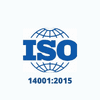
ISO 14001:2015
ISO 14001:2015 (Envirnomental Management System ) specifies the requirements for an environmental management system that an organization can use to enhance its environmental performance. ISO 14001:2015 is intended for use by an organization seeking to manage its environmental responsibilities in a systematic manner that contributes to the environmental pillar of sustainability.
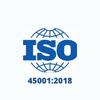
ISO 45001:2018
ISO 45001:2018 (Occupational Health and safety ) specifies requirements for an occupational health and safety (OH&S) management system, and gives guidance for its use, to enable organizations to provide safe and healthy workplaces by preventing work-related injury and ill health, as well as by proactively improving its OH&S performance.
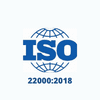
ISO 22000:2018
(Food Safety and Management) ISO’s food safety management standards help organizations identify and control food safety hazards, at the same time as working together with other ISO management standards, such as ISO 9001. Applicable to all types of producer, ISO 22000 provides a layer of reassurance within the global food supply chain, helping products cross borders and bringing people food that they can trust.
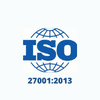
ISO 27001:2013
(Information Security Management) ISO/IEC 27001:2013 Provides the overview of information security management systems (ISMS). It also provides terms and definitions commonly used in the ISMS family of standards. This document is applicable to all types and sizes of organization (e.g. commercial enterprises, government agencies, not-for-profit organizations).
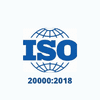
ISO 20000:2018
(IT Service Management) ISO/IEC 20000-1:2018 – provides requirements for ITSM and is relevant to those responsible for initiating, implementing or maintaining ITSM in their organisation. It also provides a specification for a service management system (SMS). Organisation can have their SMS independently certified as conforming to the requirements of the Standard.
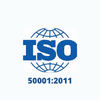
ISO 50001:2011
ISO 50001 (Energy Management System) provides a framework of requirements for organizations to: Develop a policy for more efficient use of energy. Fix targets and objectives to meet the policy. Use data to better understand and make decisions about energy use.
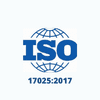
ISO 17025:2017
ISO/IEC 17025(Testing and calibration laboratories)enables laboratories to demonstrate that they operate competently and generate valid results, thereby promoting confidence in their work both nationally and around the world.
Our Services
- Accreditation for Certification bodies
- Accreditation for Inspection Bodies
- Accreditation for Laboratories
- Accreditation for Government inspection bodies
Drop Us a Line
Call Us Now
QC, H9P, 2X1, Canada.
WC2h 9JQ
Drop Us a Line
Call Us Now
QC, H9P, 2X1, Canada.
WC2h 9JQ
© 2025 U360 Cert. All rights reserved.

